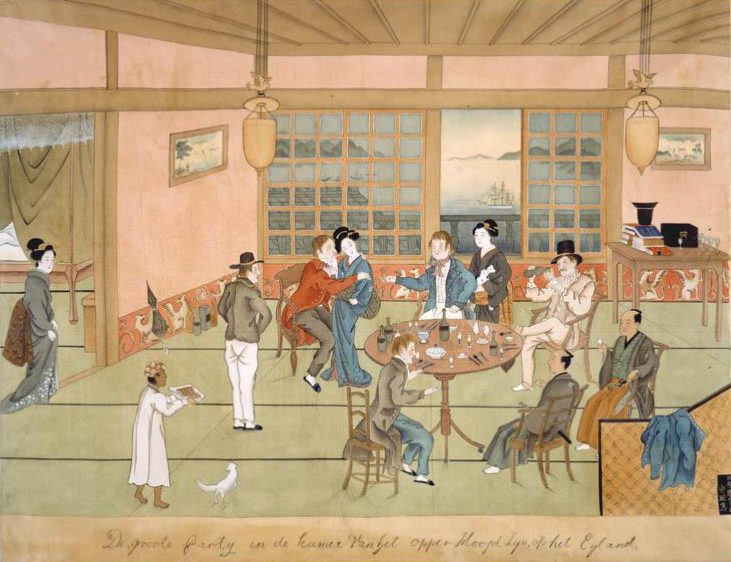Goa, once the capital of Portuguese Empire in Asia experienced many interesting phases. One of them was when Japanese slaves were brought to Goa by the Portuguese traders. The era is long forgotten in history and only a handful of people in Goa may be aware of the fact. The trade flourished during the internal conflict in Japan.
Inception of the slave trade
Portuguese were introduced to Japan when a Chinese ship carrying Portuguese traders landed on Japan’s shores due to a storm. After this incident Portuguese traders began trading with Japan, items such as firearms and gunpowder were also traded. Portuguese traders would often purchase Japanese slaves and ship them to the Portuguese colonies in Asia.
Speaking about the slave trade Michio Kitahara writes in his book, Portuguese colonialism and Japanese slaves, “toward the end of the 16th century, a large number of Japanese were in several parts of Asia … They were found in the regions where Portugal was dominant as a colonial power, such as India, south-east Asia, and southern China, particularly in Macao, around the Strait of Malacca and in Goa, India.”
Opposition to Japanese slaves
Christian missionaries such as the Jesuits objected to this practice. The Jesuits were operating in Japan to spread Christianity. Slave trade negatively affected the Japanese view towards Europeans. The church had been protesting since 1555 but only in 1571 Portugal’s King Sebastian prohibited the slave trade.
To this the Portuguese traders replied, “We have spent one million cruzeiros or more over the years to purchase slaves … Therefore, we cannot accept that the King revokes this right and deprives us of the slaves we have already purchased.” (Source: Japantimes.co)
Support to slavery in Goa
Amitav Gosh in a blogpost quotes from ‘Slavery in Medieval Japan’ by Thomas Nelson. Mr. Nelson writes that From 1603 and 1605 citizens of Goa had protested the law that prohibits the trade of legally purchased slaves. By that time Philip II of Spain became Philip I of Portugal and ruled both Portuguese as well the Spanish Empires. He was confronted with the problem. He is quoted as saying,
‘”I have been informed of a number of abuses and injustices concerning the taking and captivity of people from Japan. My late cousin King Sebastian ordered in 1570 that this be prohibited. I ordered that the said decree should be published and obeyed in those regions. I have not been told that it has been claimed that this edict should be extended to slaves who are legally and properly held. This has created many problems in addition to the damages incurred by the inhabitants of the Estate [of India] as well as the problems in that are likely to arise if they are set free. It was not my intention, nor would it have been the wish of the King Sebastian, to prevent Japanese being held as slaves when there are just and lawful titles and in those cases in which the law permits it to be done, as with the people of other nations. In order to prevent other problems that have been reported to me by the cities of Goa and Cochin, I have enacted the accompanying provision, which you will order to be published so that it will come to the notice of everyone; you will see this is obeyed, taking care that all the abuses presently existing and that hitherto have existed in this matter be prevented, and that the said slaves have the right to seek justice if they claim their captivity is illegal and lacks legitimate title”‘
Japanese opposition to slave trade
Hideyoshi, the great unifier of Japan wrote to the Jesuit Vice-Provincial Gaspar Coelho in Kyushu on July 24, 1587. In the letter he said,
‘”It has come to our attention that Portuguese, Siamese, and Cambodians who come to our shores to trade are buying many people, taking them captive to their kingdoms, ripping Japanese away from their homeland, families, children and friends. This is insufferable. Thus, would the Padre ensure that all those Japanese who have up until now been sold in India and other distant places be returned again to Japan. If this is not possible, because they are far away in remote kingdoms, then at least have the Portuguese set free the people whom they have bought recently. I will provide the money necessary to do this.”‘ (Source: Luis Frois’s Historia de Japam)
Portuguese banned from Japan
Japan went into isolation for 250 years beginning in 1633. The slave trade eventually diminished. Portuguese (along with other foreigners) and Christianity were both banned in Japan. There are no traces left of the era in modern Goa. Hence, very few in Goa know about the Japanese slaves that once lived here.


